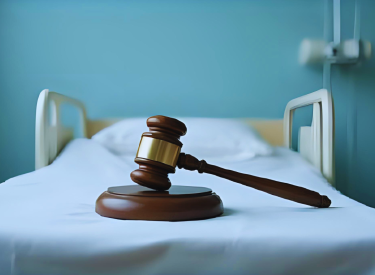
Generations of Addiction
In a 1980 song, Bob Dylan famously pined, “Wish I didn’t know now what I didn’t know then.” It’s a nice sentiment in a love song, but in other circumstances, we can and should be glad for what we know now but didn’t know then. It will save lives.
My only sibling, Philip Charles Hanson, overdosed on fentanyl in 2004, 14 months after our mother died; opioid addiction was a major complicating factor in her death as well.
Unlike many families who have lost or almost lost loved ones in the twenty-plus years during which the opioid epidemic has taken hold, our family should have been among the most equipped to handle his and my mother’s addictions. My parents, and by then I, were college educated. My father received his M.D. from Johns Hopkins, one of the best medical schools in the world. And he was a doctor with about thirty years’ experience in Weirton, West Virginia – an epicenter of the opioid epidemic, where he often saw patients suffering from addiction first-hand. When Dad started seeing Philip nod off at dinner or while driving, there was no claim that he did not know what he was seeing. He knew his son needed help, and he knew why he needed it.
Despite having access to a solid educational background to help sort through treatment options, top-notch medical knowledge, and good insurance, my father and I were paralyzed.
Our greatest hope for Philip came about when he almost ran down several schoolchildren with a car in front of a police station in the middle of a weekday afternoon. Surely, we thought, a judge would now force him to seek treatment. But we now know that if you are hoping the criminal legal system will save yourself or an addicted loved one, you are almost certainly going to be disappointed, or worse. If only my family, and so many others like us, had instead had access to a tool like ATLAS, rather than hoping a judge would intervene and save my brother.
ATLAS is a free, web-based platform that helps exhausted, distraught and confused people find the help they need.
It will help people suffering from substance use disorders and their allies to sift through the daunting (and often, dangerous or inaccurate) amounts of information that is available about treatment. Based on Shatterproof’s National Principles of Care, one of which is fast access to treatment, ATLAS should become an essential tool in moving quickly towards quality, science-based addiction care. This is often the difference between making strides to getting well and making possible strides towards an early grave.
The ATLAS tool will support addiction treatment professionals and the medical community in combating addiction by acting as a free and trustworthy starting point where people with substance use disorders and their families can learn what is important in quality addiction treatment and compare treatment options, an essential step towards lifting the veil of ignorance around addiction that has led so many of us to wish we didn’t know now what we didn’t know then.
It’s my hope that treatment providers in New York, which is one of six states selected to partner in the development of this tool, will collaborate on this initiative and come together to create a solution for providers, patients, and families. What we know now should be harnessed in platforms like ATLAS, so that fewer families find themselves in a fruitless void of wishing they knew better, or never had to know in the first place.
Margaret Hanson is a Shatterproof Ambassador.




